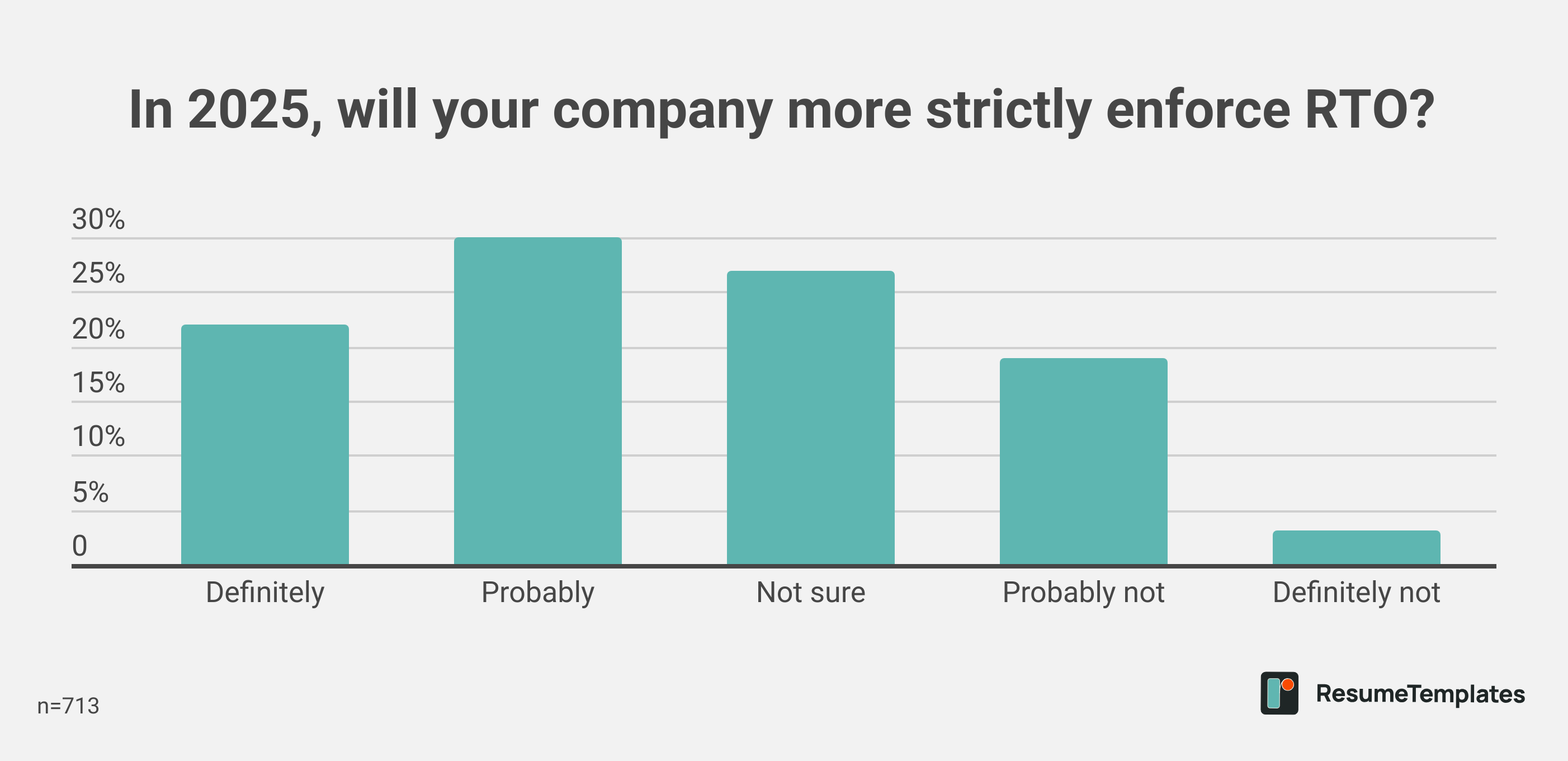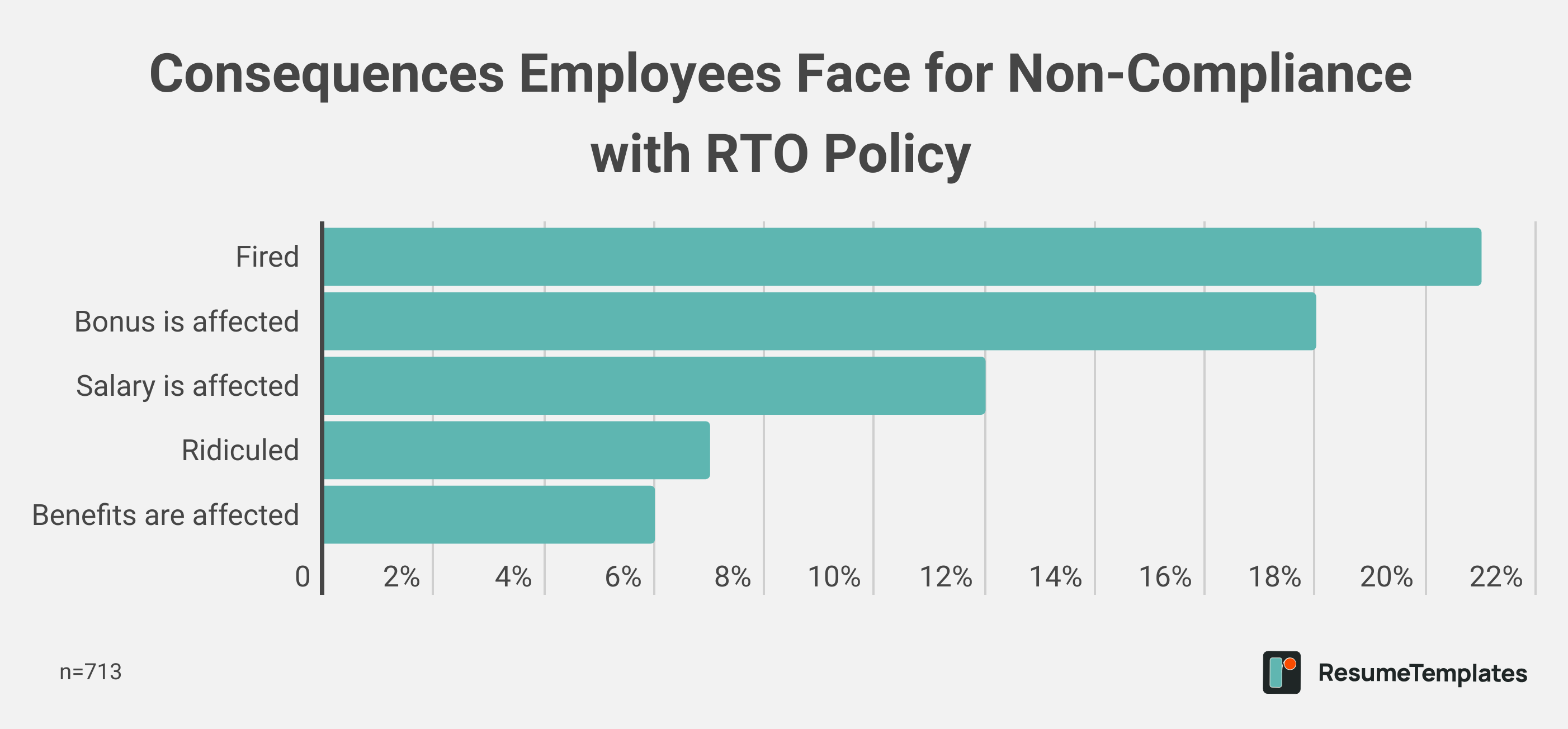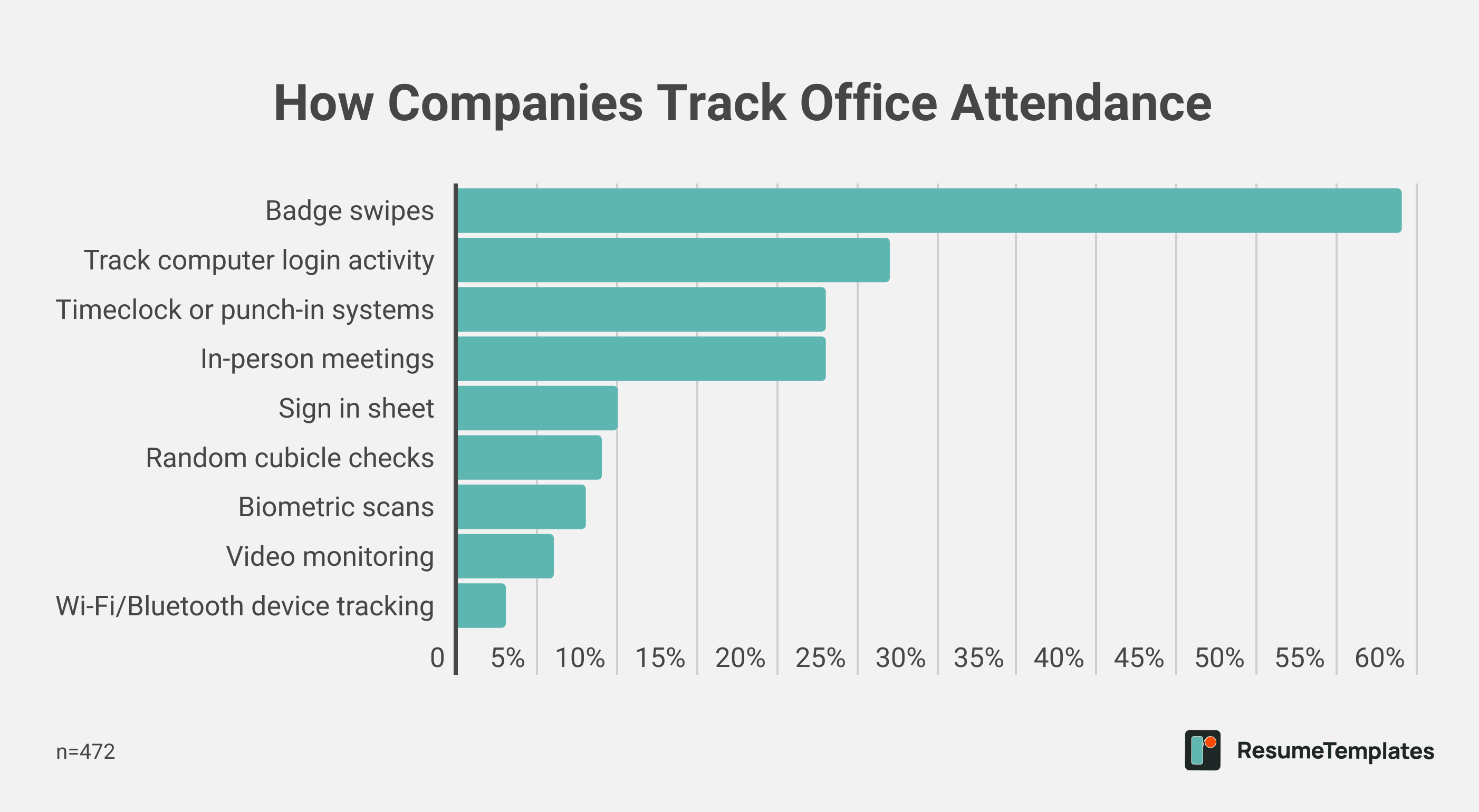Amazon’s recent five-day in-office mandate has sparked backlash, with over 90% employees reporting dissatisfaction with the new policy.
In October, ResumeTemplates.com surveyed 713 business leaders at companies that have implemented a return-to-office (RTO) policy, requiring workers to be in the office at least one day per week. The study reveals that many companies are facing challenges with enforcing these policies, as employees find ways to circumvent them.
Study highlights:
- 3 in 4 companies are having issues with workers not complying with RTO policy
- 7 in 10 companies will track office attendance in 2025, 60% currently do
- 52% of companies will be stricter in 2025 about compliance
- Half of business leaders say employees who spend more time in the office are more likely to receive raises and promotions
3 in 4 Companies Are Having Problems With Workers Not Complying With RTO
RTO policies are facing varying levels of compliance from workers, with companies experiencing differing degrees of concern over these issues. Nearly 8% of companies say non-compliance with RTO policies is a major problem, while 36% view it as a little bit of an issue, and 33% believe it’s a minor problem. Conversely, 23% say it’s not a problem at all.
The survey reveals how workers are skirting RTO requirements. The most common tactic is simply not showing up to the office on the designated days, cited by 47% of companies. Additionally, 40% report that workers are not staying for the full day. A smaller group (7%) say employees have found ways to manipulate the swipe-in or sign-in systems to make it appear as though they are complying.
In 2025, 22% of companies say they will definitely be more strict about enforcing RTO, while 30% say they probably will. On the other hand, 19% say they probably won’t, and 3% say they definitely won’t be stricter. A number (27%) are not sure.

“Companies are having trouble with RTO compliance because some employees feel like they were misled or lied to,” says ResumeTemplates’ Chief Career Strategist Julia Toothacre. “Instead of listening to what employees want, companies decided to rule with an iron fist, which resulted in a loss of trust. Employees want flexibility, and when left without a choice, it makes sense that some have decided to cheat the system to take care of their family or themselves.”
1 in 5 fire employees who don’t comply
Employees who do not comply with the RTO policy face various consequences, with 21% of companies firing them, 18% affecting their bonuses, and 12% impacting their salary. Other consequences include having benefits affected (6%) and facing ridicule (7%). However, 41% of companies report there are no consequences for non-compliance.
“Employees who are already trying to get around these mandates are likely on their way out. My assumption is these employees are looking to make a move and haven’t found something yet, or are waiting to be fired so they can potentially collect unemployment,” says Toothacre.
“Companies should be more concerned about morale right now than cracking down on RTO mandates. Workers are struggling and making them fearful for their jobs isn’t going to make them more productive or engaged. If companies want productivity to increase, they need to offer flexibility.”

7 in 10 Companies Will Track Office Attendance in 2025
Currently 60% of companies track in-office attendance. Among those that track attendance, the most common methods are badge swipes (59%), software that tracks computer login activity (27%), and timeclock or punch-in systems (23%). Other methods include in-person meetings (23%), sign-in sheets (10%), random cubicle checks (9%), biometric scans (8%), and video monitoring (6%).
In 2025, 44% of companies say they will definitely track in-office attendance, while 26% say they probably will. The most common ways they will track include badge swipes (60%), software that tracks computer login activity (27%), timeclock or punch-in systems (23%), and in-person meetings (23%).

Half of Business Leaders Say Office Presence Increases Chances of Raises and Promotions
Nearly half of companies say employees who spend more time in the office are definitely (14%) or probably (35%) more likely to be promoted. In contrast, 29% are not sure, 16% probably aren’t, and 6% say they are definitely not more likely to be promoted. About 29% are unsure.
Similarly, nearly half of companies also believe that employees who spend more time in the office are definitely (13%) or probably (32%) more likely to receive raises.
“In most companies, promotions are more about relationships, visibility, and influence than they are about performance. Sure, there are people who will be promoted because they managed a big project well or are exceptional at their job, but that’s more of an exception than the rule.
“You need to be known in your organization, and your manager needs to be an advocate for you. For some, this requires in-person visibility. The ‘water cooler’ talk or being able to drop into someone’s office for a quick conversation can hold a lot of weight,” says Toothacre.
Methodology: This survey was launched September 26, 2024. In total, 713 U.S. business leaders were surveyed.
To take the survey, respondents had to be over 25 years old, have a household income of at least $75,000, an education level above high school, and currently work at a company with more than 10 employees. Respondents also had to be in a manager-level role or higher.
Respondents had to pass through a screening question ensuring they work for companies that have implemented a return-to-office policy and are knowledgeable about these policies.
Media inquiries can be directed to [email protected].
Resume Templates offers free, HR approved resume templates to help you create a professional resume in minutes. Choose from several template options and even pre-populate a resume from your profile.